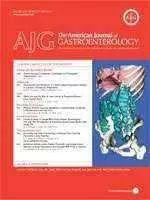Celiac.com 10/09/2009 - The causes and mechanisms that fuel the development of gastrointestinal symptoms, along with the individual perceptions of those symptoms are varied and, in many cases, not well understood.
A team of researchers recently set out to explore the clinical and experimental evidence regarding the possible association between gluten sensitivity, celiac disease, irritable bowel syndrome, and the development of gastrointestinal symptoms.
Celiac.com Sponsor (A12):
The research team was made up of Elena F. Verdu, MD, PhD, David Armstrong, MA, MB, BChir, and Joseph A. Murray, MD. The team's hypothesis is that, even in the absence of fully developed celiac disease, gluten exposure can trigger symptoms that mirror FBD.
To test that hypothesis, the team set out to see how many people with gluten sensitivity are likely to suffer from symptoms similar to functional bowel disorder (FBD).
The team proposes model for the exploring and assessing factors influencing the development of gastrointestinal symptoms and dysfunction by gluten in FBD and organic disease.
They elaborate on their hypothesis that gluten sensitivity and post-infectious irritable bowel syndrome (IBS) represent two triggers that can explain at least part of the wide range of IBS symptoms and dysfunction. Better understanding this relationship offers researchers a better understanding of the role of mucosal responses to luminal factors in FBDs.
The team proposes that the animal model of gluten sensitivity in human leukocyte antigen (HLA)- DQ8 mice
permits exploration of mucosal pathophysiological changes that develop before the onset of advanced inflammation in gluten sensitive individuals.
A clearer picture of the means by which gluten triggers symptoms in sensitive individuals will help to shed light on the interactions between host genotype, diet, and intestinal microbiota in triggering gluten sensitivity.
The goal of the review is to shed light on the connections between celiac disease, IBS, and gluten sensitivity, as well as to emphasize several important facts.
First, 'gluten sensitivity' is marked by one or more various immunological, morphological, or symptomatic problems that may also be common to celiac disease and IBS.
Second, gluten sensitivity and classic celiac disease may have common roots, but people with gluten sensitivity do not meet the clinical threshold for celiac disease.
Third, while gluten sensitivity and IBS may share common symptomatology, gluten sensitivity by definition is not IBS.
Successful treatments for IBS have are few, due to the lack of pharmacological targets and even a conceptualized framework for the basic pathogenetic mechanisms.
In some patients with symptoms of post-infectious IBS, doctors have been able to associate the role of subtle persistent inflammation in as a likely trigger for gut immune responses.
They conclude that recent clinical evidence supports the view of gluten sensitivity as the likely cause of gastrointestinal symptoms that would otherwise point to of IBS.
This information dovetails with other recent information regarding the prevalence of gluten sensitivity. The idea that gluten sensitivity is far more widespread than believed , and that gluten sensitivity lies at the heart of numerous gastrointestinal and other systemic disorders is rapidly gaining support from data, and drawing new believers within the scientific community.
Source:
Open Original Shared Link







Recommended Comments